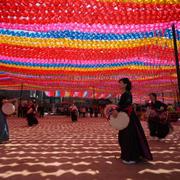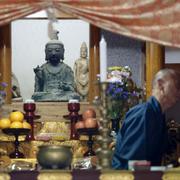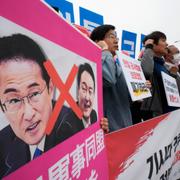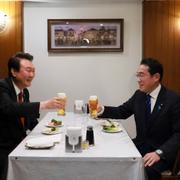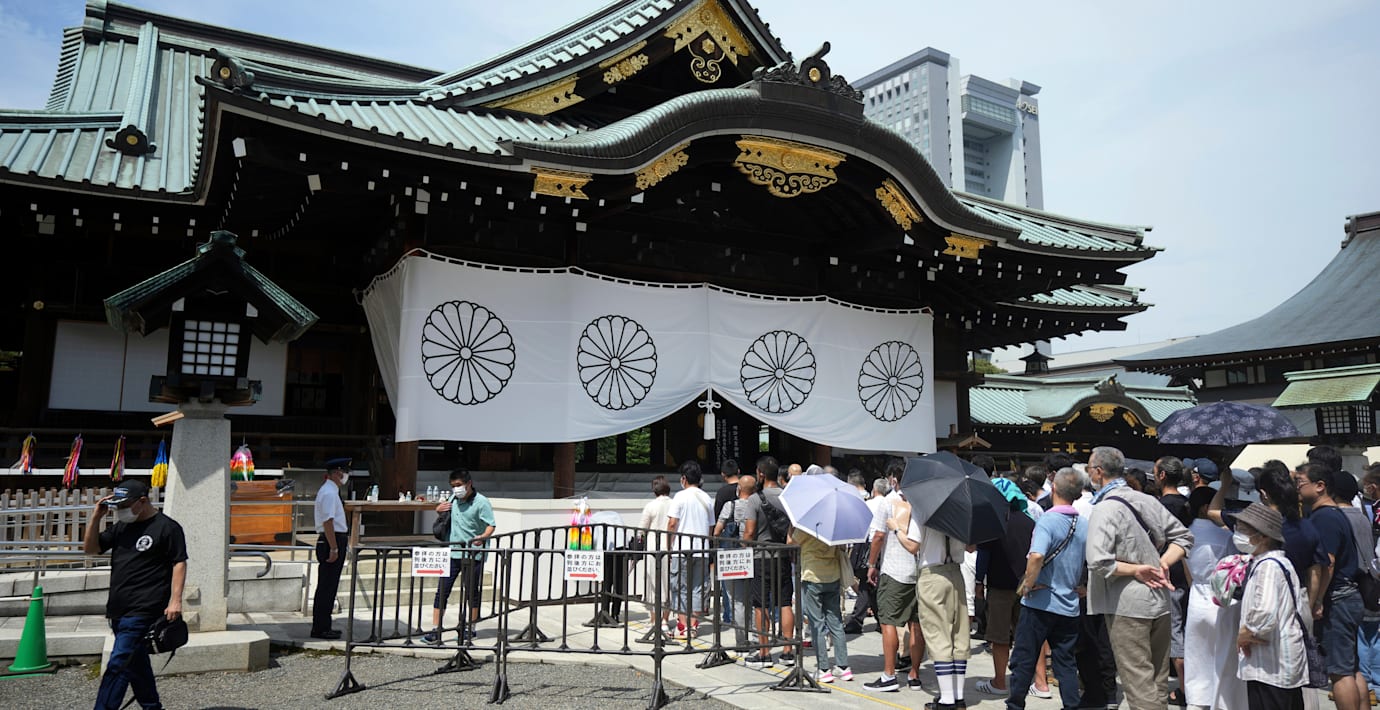
Japans premiärminister lovar att ”aldrig föra krig”
Japans premiärminister Fumio Kishida lovade på årsdagen av landets kapitulation i andra världskriget att aldrig föra krig igen, rapporterar Reuters.
Det fredliga budskapet motverkades dock enligt nyhetsbyrån av att flera ministrar samtidigt besökte den kontroversiella Yasukuni-helgedomen i Tokyo och att premiärminister Kishida skickade gåvor dit. Sydkoreas regering reagerade med missnöje på uppgifterna, och en talesperson uttryckte ”djup besvikelse”.
Yasukuni-helgedomen är till för att hedra soldater och andra som fallit i Japans krig genom historien, men även ett antal japanska krigsförbrytare hedras där.
bakgrund
Kontroverserna runt Yasukuni
Wikipedia (en)
The controversies surrounding Yasukuni Shrine are related to the choice of Japanese people who are honoured at this nationally significant Shinto shrine and war museum in central Tokyo. Most of the venerated dead served the Emperors of Japan during wars from 1867 to 1951 but they also include civilians in service and government officials. It is the belief of Shintoism that Yasukuni enshrines the actual souls of the dead, known as kami in Japanese. The kami are honoured through liturgical texts and ritual incantations known as Norito.
However, of the 2,466,532 people named in the shrine's Book of Souls, 1,068 are war criminals who were convicted of war crimes, including 14 people who were tried by the International Military Tribunal for the Far East, following World War II. Because of the decision to honour individuals who were found responsible for serious breaches of humanitarian law, China, South Korea and North Korea have called the Yasukuni Shrine an examplar of the nationalist, revisionist and unapologetic approach Japan has taken towards its conduct during World War II. This has made visits to the shrine by Japanese Prime Ministers, cabinet members or politicians extremely controversial. Former Prime Minister Junichiro Koizumi made annual personal (non-governmental) visits from 2001 to 2006. Since 1985, China, North Korea, and South Korea have protested such visits.
The decision as to whom is enshrined at Yasukuni is solely a religious activity, owing to the legal separation of State Shintoism and the Government of Japan. The Yasukuni priesthood have complete religious autonomy over deciding whom they bestow enshrinement. It is thought that enshrinement is permanent and irreversible by the current Kannushi.
Omni är politiskt obundna och oberoende. Vi strävar efter att ge fler perspektiv på nyheterna. Har du frågor eller synpunkter kring vår rapportering? Kontakta redaktionen
